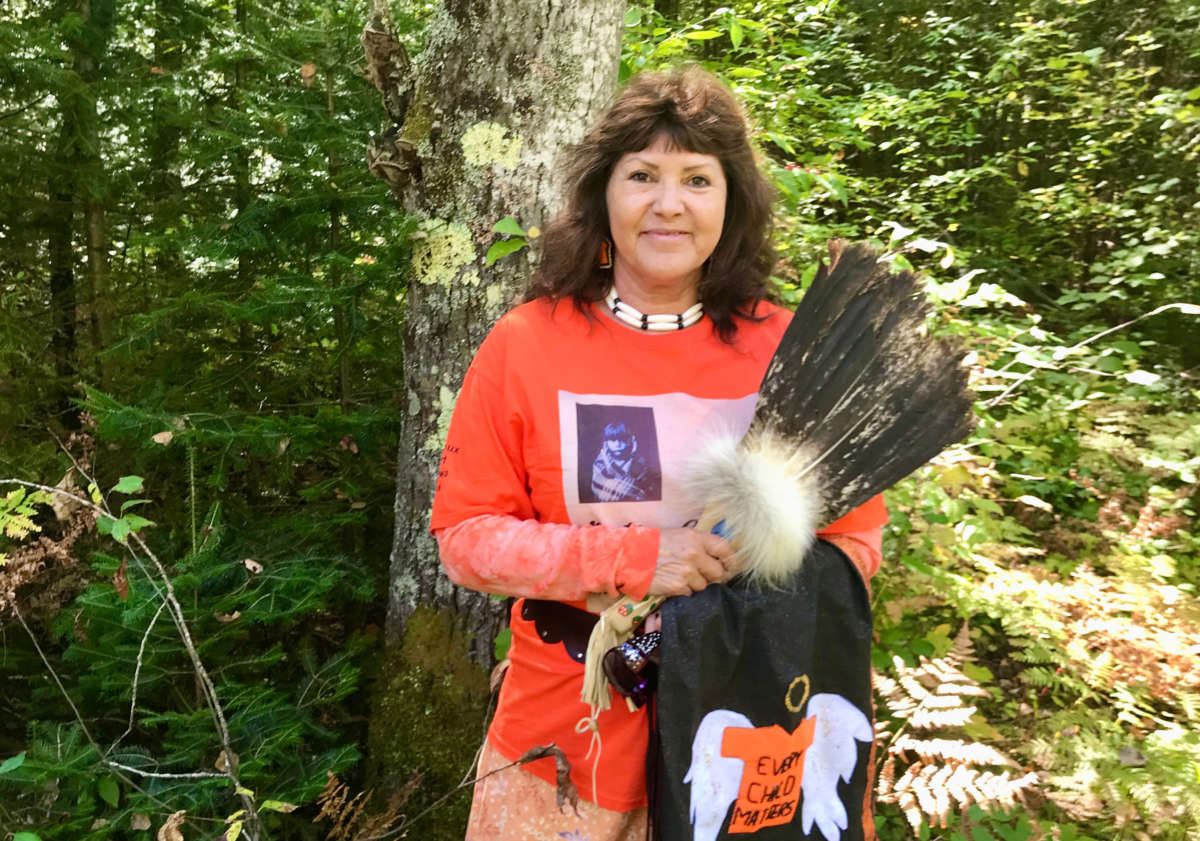Linda Raye Cobe, 64, is a member of the Lac Vieux Desert Band of the Lake Superior Chippewa Tribe, whose healing journey led her to publish in 2015 a short courageous and straightforward memoir called Red, White & Blues. In it, she tells what happened to her just before her 6th birthday, when she, her siblings and cousins were taken from their family homes in Watersmeet, Michigan, to the Holy Childhood School in Harbor Springs, an Indian boarding school five hours away. Cobe writes of arbitrary beatings raining down from the nuns as they screamed that the holy children under their care, whose childhoods they were ending with their fists, were “good for nothing, stinking little, dirty Indians.”
That trauma was followed by another — adoption out of her family and tribe to a white family in Baraga, a village on the Keweenaw Bay of Lake Superior named for Bishop Baraga, a near mythical figure (in local white lore), whose 35-foot shrine is a local attraction. Though just a little more than an hour’s drive from home, it too was a world apart, which was the point of the forced assimilation of Indian children into the white world. At first, her adopted parents lavished her with toys, dolls, even a bicycle, none of which she’d ever had. But by the fourth grade, she was being routinely sexually exploited by her adopted father as well as the family priest, as her adopted mother looked away. It went on until Cobe finally escaped into a young marriage, the first of four.
Though it’s still difficult for her to speak publicly about the toll of victimhood and the price of survival (the further assimilation of her own four children), Cobe went to the Pellston, Michigan, stop of U.S. Interior Secretary Deb Haaland’s “Road to Healing” tour on August 13, 2022. It was a long and emotional day, and she honestly wasn’t sure if she was going to testify or not. But in the end, she did speak, because Cobe hadn’t heard anyone else make her point: While she was only at boarding school for one year, her parents had been so weakened and overwhelmed by their powerlessness at having their children removed to a boarding school, that it was easier for the state to pry her and her younger sister away from her family into adoption. Cobe was the very last speaker on that historic day in which the crimes committed against her, and the atrocities against so many others, became part of this country’s official record.
On September 30, Cobe spoke again at a remembrance ceremony on her tribal homelands in Watersmeet on “Orange Shirt Day.” Orange shirts are worn in recognition of the need for a truth and reconciliation process about the horrors of Indian boarding schools and in solidarity with the pain of those who suffered from enforced assimilation. There was a sunrise water ceremony, prayers, honor songs, a two-mile walk and a community lunch. As she and her cousin Bobby Hazen spoke about the anguish of what had happened to them at boarding school, little children sunk into the safety of their parents’ arms. After their remarks, some of the older boys were part of the drum circle, and a few of the girls danced in their traditional jingle dresses.
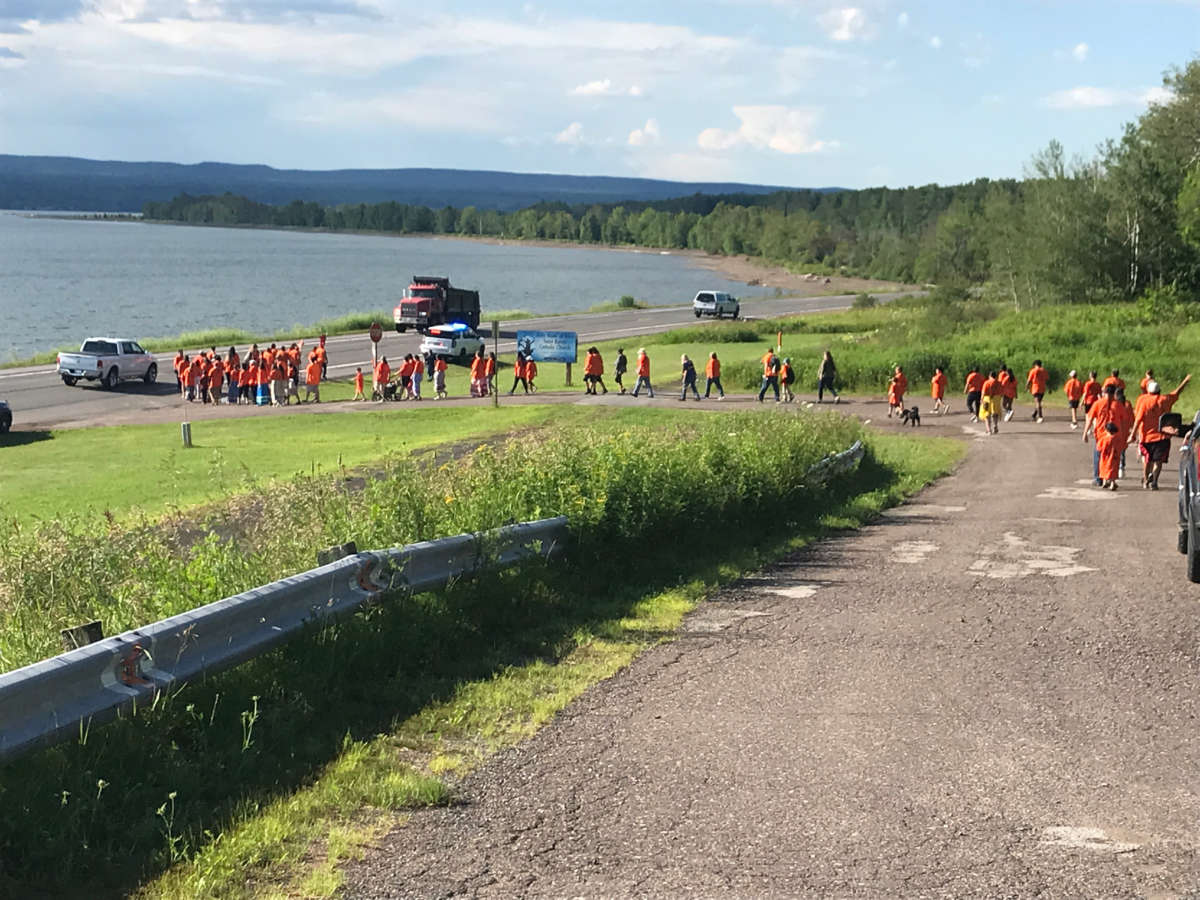
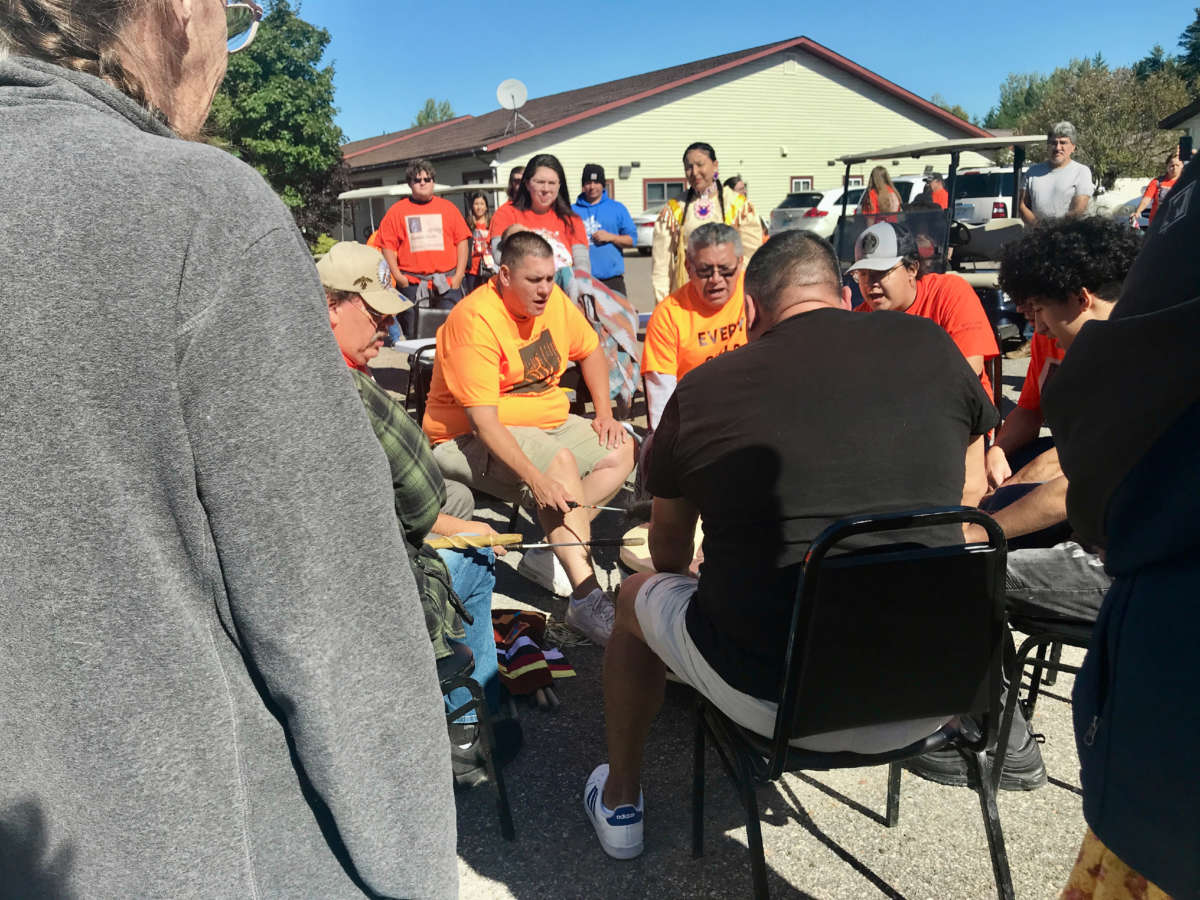
This interview is the result of conversations with Linda Raye Cobe in Watersmeet and at a similar Indian boarding school remembrance event held in July in Baraga.
Frances Madeson: What’s it like to come back to a place as beautiful and alive as this, surrounded by lakes and dense forests, but one with so much personal history, and so many layers of experience?
Linda Raye Cobe: It’s mixed.
In Watersmeet, we were so poor, my parents went and brought a couch home from the dump; that’s what my sister and my two brothers and I slept on — the four of us slept on the couch, and I think that one green wool blanket we shared was one [my father] brought home from the Korean War. There were bugs in the couch and I remember having scabs on my arms from being bitten. We had an outhouse, no electricity or running water. We didn’t celebrate birthdays or Christmas or anything because we didn’t have money for toys and cakes. But we were happy; we didn’t know what we were missing. We made our own fun; we didn’t need friends because I had so many cousins that lived right next to us. And we were always into mischief, and exploring, making toys — the boys would make bows and arrows, and the girls, we’d go picking berries and apples, we’d chase animals in the woods, that kind of thing.
And then the culture shock was that strangers come and get you and your little cousins, and the adults not being able to act… I mean someone comes to get your kids today, what would you do, you know, if they say they’re taking your kids, and there’s nothing you can do about it? It would drive you over the edge. It was all about the land grab. If we were assimilated into their society, then they could have the land for free, and they didn’t have to fulfill the treaty obligations.
After Watersmeet, I didn’t really have a childhood, it was stolen from me. I was 5, turning 6 that fall that they came and got us, and we were taken so far from home. As a kid, you have no comprehension what the heck is going on, why they are taking us away from my parents, breaking up our family.
And then they drop us off with the nuns and there’s no more running around in the woods free as a bird. You’re in boot camp, military boot camp. They got you up before the crack of dawn, 4 o’clock in the morning, to get up and ready and dressed for church every morning before school. Then they would come and inspect your bed, and it better be straight, and if it has a wrinkle it’s getting torn apart and you’re gonna have to make it again. And just really cruel, they would beat you for anything, and so you had to watch kids get beaten, we were just scared to death. You don’t know where it’s coming from, you can’t look up, you can’t look down, you can’t open your mouth, you can’t smile. I was slapped hard across the face just for smiling at my cousin across the room. So, your whole identity’s taken from you, and you don’t know what you are, and you don’t know why.
I was adopted to a white family in Baraga and that was a continuation of losing my culture after going to boarding school for a year, and in the family that I lived with, the father was an alcoholic and sexually abused my sister and me for years, so there’s a lot of traumatic memories in that regard.
I’m trying to find my way back. And the way to find your way back is once you reach a stage in your life when you’re introspective, and you want to know who you are, what is your purpose in life?
It is really hard for me to get up and tell my story. I keep thinking it’s gonna get easier, but it’s not. I’ve always been a self-conscious person; when I went to college I did horribly, horribly, when I had to get up in front of the whole class.
It’s difficult to bare your soul, and yet it’s the truth of what happened. Why am I carrying all this shame from the abuse and the trauma? But it’s the voices you have to reverse, all of that self-talk — “What a worthless nothing piece of crap you are, you’ll never amount to anything, your parents don’t love you. You’re dirty, you’re stupid” — all of that negative verbal abuse, and then the physical abuse, and the sexual abuse. It takes a lot of strength to fight your way back, and to change that self-talk and believe in yourself. It’s part of our intergenerational trauma that many people still don’t know about what we survived just to be here alive.
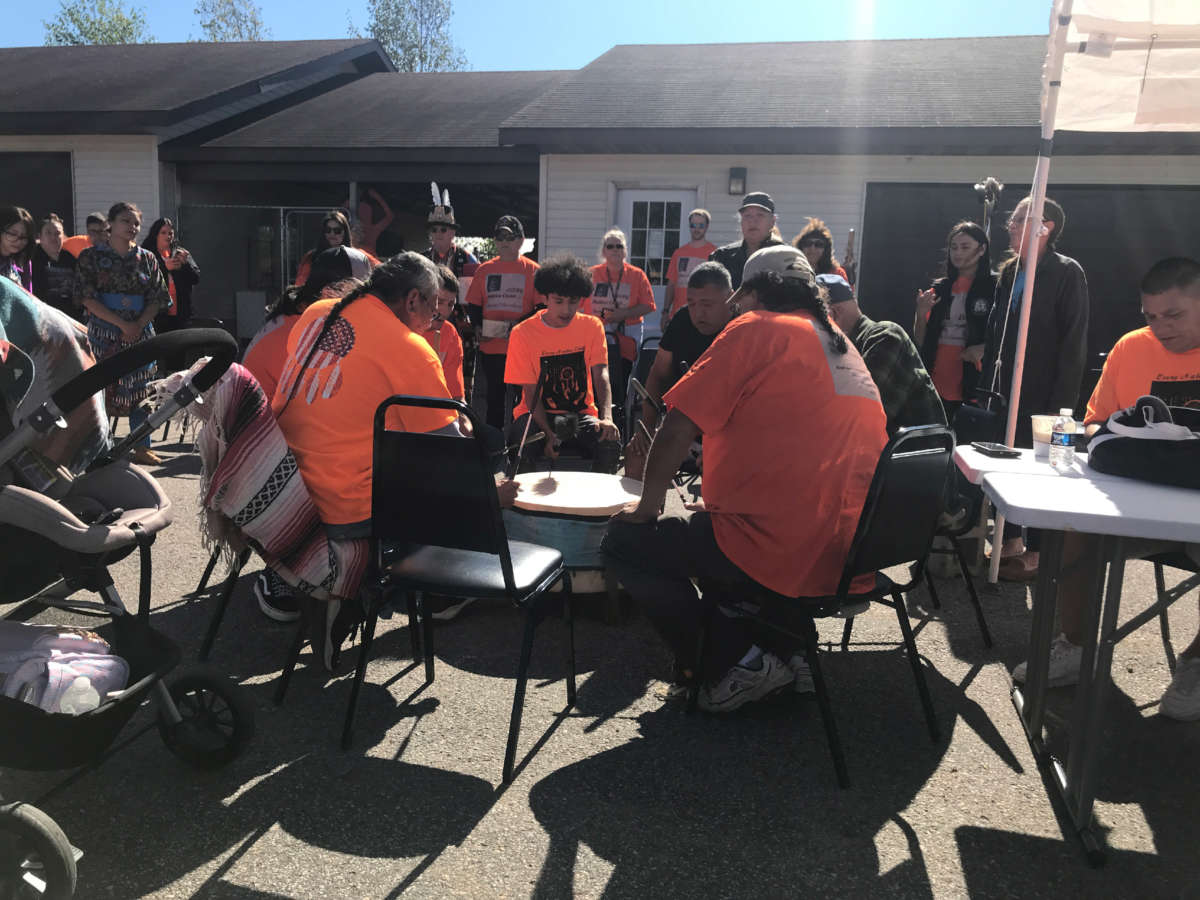
So here you’re already well on your individual path, and over the horizon comes the rise of the Indian boarding school healing movement?
It’s exciting, because we’re finally being heard and taken seriously. We have a role model to look up to in Deb Haaland. Her initiative offers so much hope and inspiration, something you want to see keep moving forward and progressing.
What are you hoping for?
That the truth will come out. And that those who harmed, raped and killed little innocent children will be held accountable. The church — it’s not just the Catholic Church, but all of the denominations — that did that.
We hope that our people will heal; that’s the biggest hope, that we heal and change our communities so our children will have a future to look forward to, and they can be proud again of who they are.
And what’s the inspiration?
The inspiration is hearing my brothers and sisters in Canada and in the U.S. sharing their stories, and that they survived that.
My brother took his own life; he couldn’t get past what happened. I look at my family and I see all of the disparity that other families didn’t necessarily have to go through, but it’s so common on reservations — fatal accidents, for instance. My other brother died in a car wreck; I lost my two younger sisters to diabetes; my mother died of diabetes; my father died of alcoholism, cirrhosis of the liver.
We lived in poverty, we had domestic violence. Now I understand what white privilege is all about. We didn’t have toys, we didn’t have books, we didn’t have sheets and warm blankets on our bed. We struggled, and we had to go to school and face kids who made fun of us, for years. And you didn’t fit in and always felt awkward and out of place. And you felt like no one cared.
And then after a year, the nightmare was over but it doesn’t ever really leave you?
A short time before when I did get home, my parents had split up, because my dad was beating my mother so badly, he almost killed her. She took the youngest girl and moved to Milwaukee. Back then, they had a relocation program; they hooked her up with a good job in Milwaukee, and so our younger sister didn’t go to boarding school, but she didn’t get to grow up with her siblings, either. And my two older brothers stayed with my dad; [Social Services] took my other sister and me because they said he couldn’t take care of us, that we were being neglected. Because we were poor.
We came back home in July, 1964. On August 3, I remember everyone being over at the house. When everyone’s over at the house, it makes me remember the day they came and got us to take us to school. It was kind of the same thing, everyone was coming over to the house, my uncles and everyone was like, they were on the verge of “You’re not taking my kids” — kind of one of those situations.
The social worker and the foster mother came, they knew my dad was an alcoholic, and came and said, “We brought you this beer, and we’re gonna take these girls because we can provide a better home for them than you can,” and he’s like, “OK.” Later down the road, I heard that he had told somebody that he thought it was gonna be temporary. But after he’d seen what they did, what they had the authority to do, to take us kids to boarding school, I think he wasn’t gonna fight the foster care. By then, they had kind of talked him into giving up his rights.
But you know all we heard was “Your parents didn’t love you, don’t love you, that’s why they gave you up; your father’s nothing but a drunk, your mother’s a whore.” They would totally badmouth anything to do about my culture and family, so I didn’t know anything about it. I’m still finding relatives I didn’t know I was related to.
What’s that like?
Strange, because I didn’t meet my grandparents on my mother’s side, the Oneida side. I think I only know a few cousins; there’s so many I haven’t met yet. I don’t know, I guess I’ve accepted so many things over my 64 years that it’s just one more thing, that oh well what can you do about it? Nothing.
That’s the truth part. What about reconciliation?
I don’t think 10 “Our Fathers” and five Hail Marys is gonna cut it, or an apology from the church. I think it needs… words mean nothing… what is the action you’re going to take? Where are the prosecutions? Some of these people are still alive. That’s a crime what they did, and we don’t even know how many are buried in this country. Just look at Canada, so you know it’s gonna be… there’s even more boarding schools in our country than there was in Canada. At one point in history, 80 percent of all Native kids were in boarding schools, in the early 1900s. And it gets in your DNA, the grief and trauma, and going back to the Indian wars when they would wipe out the total tribe, and whoever made it didn’t have time to grieve or provide decent burials or anything. For so many, their whole families are lost and gone, so what do they do with that?
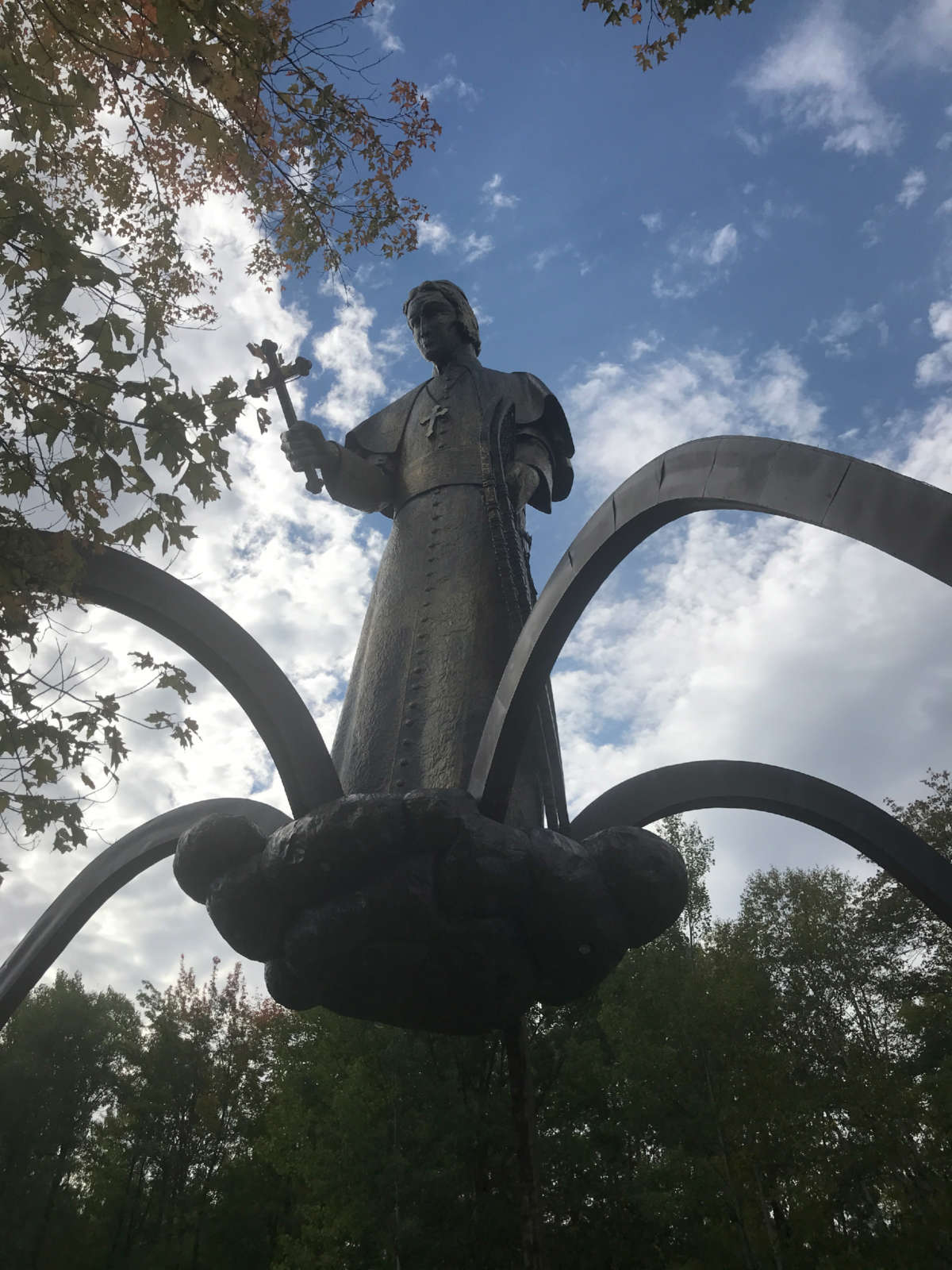
And they never acknowledge all the contributions we’ve made. In our country, our highways are built on Native-engineered trails. Our form of government was modeled after the Iroquois. Natives had the first tennis shoes, they would dip their feet in the sap of the rubber tree. The Boys and Girls Scouts’ principles are built on, you know, how to build a fire or survive in the world, is built on our culture. It was the Navajo code talkers who, after being forbidden to speak their language and beaten for it, save the war. How would they have won it without that?
Why did you write your book?
All my life, as people would start getting to know me and ask how I grew up and all about my family, when I started to tell them, they would be shocked that I went to boarding school. “What’s that? What are you talking about?” A lot of white friends and even Natives, the young assimilated ones, a lot don’t know about boarding school and still don’t to this day. In all of my counseling I have been taught that I was a victim, but also a survivor, and I thought why not use that to help another victim so that she doesn’t feel like, well… I always felt like the only one that all the stuff ever happened to you. That’s how you feel when it’s happening to you, when you don’t know why, or what, and you don’t know how to make sense of it.
One survivor at Pellston said something really profound, that our Native culture was stolen from us. We didn’t have our coming-of-age ceremonies when you would go fast and find your vision quest. So, our spirit is crying for our culture, and that’s why they drink themselves to despair and turn to drugs, because it was stolen. It’s like a soul wound.
What ceremonies have you done since returning to your culture?
I’ve done sweat lodges, led by women with only women participants. It’s very spiritual. You go in there and you pray, it’s like going to church, but better — it’s a cleansing.
You know, I used to worship that Bishop Baraga shrine. Now I could just spit on it.
Note: This interview has been lightly edited for clarity.
Join us in defending the truth before it’s too late
The future of independent journalism is uncertain, and the consequences of losing it are too grave to ignore. To ensure Truthout remains safe, strong, and free, we need to raise $46,000 in the next 7 days. Every dollar raised goes directly toward the costs of producing news you can trust.
Please give what you can — because by supporting us with a tax-deductible donation, you’re not just preserving a source of news, you’re helping to safeguard what’s left of our democracy.
